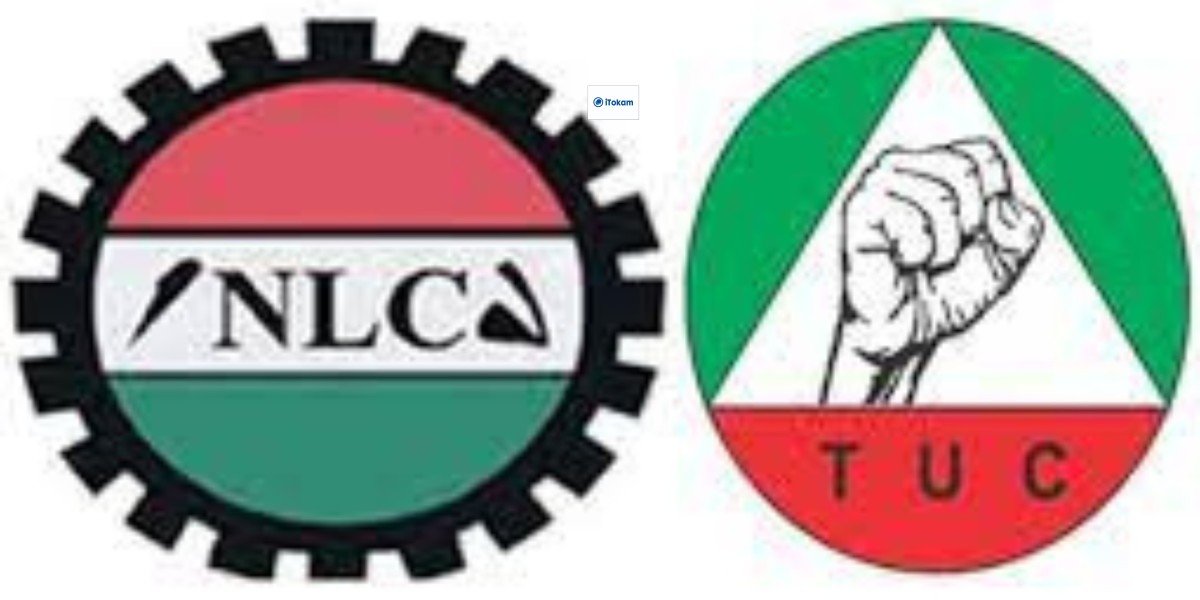Mr Femi Gbajabiamila, Chief of Staff to the President; Festus Osifo, President, TUC; Nuhu Torò, Secretary General, TUC; Joseph Ajaero, President, NLC; Emmanuel Ugboaja mni, General Secretary, NLC; and Ms Kachollom S. Daju, Permanent Secretary, Federal Ministry of Labour and Employment, attended and signed Monday's meeting and resolution.
"Continued negotiations by the TUC and the NLC with the Federal Government and secure closure on the resolutions above" was another meeting resolution.On June 19, 2023, the Labour Centres and Federal Government will discuss an implementation framework.
The Negotiating Committee requires the Federal Government, TUC, and NLC to form a joint committee to assess every pay rise or award proposal and set a framework and schedule for implementation.
• The Federal Government, TUC, and NLC to evaluate the World Bank-financed cash transfer programme and include low-income people.
• The Federal Government, TUC, and NLC to relaunch the CNG conversion program agreed with Labour centres in 2021 and work out details and timing.
• Labour centres and the Federal Government to examine education delivery difficulties and suggest remedies.
• The Federal Government and Labor Centers should analyze and set the framework for rehabilitating the nation's refineries.
• The Federal Government should offer a framework for road maintenance and rail network expansion nationwide. • The joint committee to evaluate all other TUC demands.
The Nigeria Labour Congress, NLC, and Trade Union Congress of Nigeria, TUC, were prevented from striking yesterday by the National Industrial Court, NIC, in Abuja.
The NLC returned to the negotiation table Sunday after refusing to attend, demanding that government revert petrol prices to the status quo.
The Trade Union Congress of Nigeria, TUC, presented its proposals to the government, including N200,000 minimum wage and food subsidies.
In a meeting with government leaders at the Presidential Villa, Abuja, on Sunday, the TUC sought a new minimum salary to offset the subsidy removal but did not specify a value.
Justice O. Y. Anuwe stopped the two unions from striking pending the FG's complaint.
Even though it scheduled a hearing for June 19, the court ordered the interim order and substantive suit to be served on the NLC and TUC, which were defendants/respondents in the litigation marked: NICN/ABJ/158/2023.
The Federal Ministry of Justice ex-parte application prompted the court order.
Also Read: My Nasty Experience With Vicious Fuel Subsidy Cabal, By Okonjo-Iweala
The application was filed by FG's lawyer, Mrs. Maimuna Lami Shiru, who said the strike would affect economic, health, and education.
FG also sent Exhibits FGN 1, 2, and 3, which were notices from the NLC, TUC, and NUJ to their members asking them to withdraw their services starting tomorrow, June 7.
The court ruled that section 7(b) of the NIC Act, 2006 gave it sole authority over orders to prohibit any person or body from participating in any strike, lockout, or industrial action.
It granted urgent interim reliefs under NIC Act 2006 sections 16 and 19(a).
The court found "a scenario that may severely affect the larger society and the well-being of the nation at large" in the affidavit of urgency and FG's lawyer's statement.
Justice Anuwe stated: “Counsel has pointed out that students of secondary schools nationwide, especially those writing WAEC exams, will be affected; the tertiary institutions who have only just resumed after a long ASUU strike will also be affected, not leaving the health sector, among other sectors; and above all, the economy of the nation.
In my opinion, this is an urgent case that requires court involvement.
The judge ordered, “having, thus, taken into account the totality of this application: ‘’The defendants/respondents are prohibited from taking industrial action or strike until the move on notice of 5 June 2023 is heard and decided.
“The defendant/respondents shall be immediately served with the originating processes in this suit, the motion on notice, and this court's order.
“The motion on notice will be heard on 19 June 2023. Along with other processes, defendants/respondents will receive hearing notices.”
JUSUN's General Secretary, M. J. Akwashiki, has called on its members nationwide to resign starting tomorrow before the decree.
"This is to inform all branches and chapters of our great union across Nigeria to begin recruitment for a nationwide action and withdrawal of service which would commence on Wednesday, June 7, 2023," the message said.
“This followed a decision of the National Executive Council, NEC, of the Nigeria Labour Congress, NLC, at her meeting on 2nd June 2023 over the federal government's increase in PMS pump prices through NNPCL.
“Zonal vice presidents must coordinate their zones by ensuring branch and chapter chairmen mobilize their members for full compliance. The countrywide action begins on Wednesday, June 7, 2023.”
The FG and NLC horse traded last night to avoid a strike tomorrow.
As the meeting progressed, the NLC President, Comrade Joe Ajaero, and the General Secretary, Comrade Emma Ugboaja, were spotted outside talking to the NNPCL Group CEO.
The exco and NUPENG president joined them later.
Ajaero informed State House correspondents that both sides were courting.
He merely indicated they were unaware of any court injunction preventing the strike when asked if they left because of it.
He recommended government to engage labor and solve worker problems rather than utilize underhanded techniques.
Labour has not received the court order, according to NLC sources.
NLC's meeting with the federal government continued Friday night after TUC joined at 9:20 pm.
Yesterday, the TUC sought a monthly minimum salary of N200,000.
It also asked that the government return to the N185 pump price per litre to facilitate negotiations.
TUC President Festus Osifo and Secretary General Nuhu Toro stated: “For immediate execution: Status quo ante of PMS pump price should be maintained while discussion continues. Before June 2023, the minimum wage should be raised from N30,000 to N200,000, with COLA adjustments for food, transportation, housing, etc.
“A state governor representative will sign this communiqué and all governors must commit to the new minimum wage.
“Tax holiday for government and private employees earning less than N200,000 or 500USD monthly, whichever is higher. PMS allowance for people earning N200,000–N500,000 or 500–1,200 USD.
“The exchange rate for retailing PMS in the country must be kept within a limit of two percent for the next 10 years where a variation is more than two percent, the minimum wage will be raised at the same rate.
“Setting up an intervention fund where the government will pay N10 per litre on all locally consumed PMS. This fund addresses long-standing education, health, and housing problems. Labor, civic society, and government will manage execution.
“The federal government should provide mass transit for everyone. To relieve employees and students, state governments should quickly establish subsidized transportation. This will be framed.Review the National Health Insurance Scheme immediately to include more Nigerians and prevent medicine stockpiling.
“Visiting refineries undergoing refurbishment to assess the work and set a timeline.
“The president should order the labor minister to immediately form the National Labour Advisory Council, NLAC. The government, labor, and employers will utilize this platform to address government policies that affect workers and other legal mandates.The $800 million might start food subsidy. The structure for making the National Housing Fund (NHF) available to legitimate workers must be addressed and agreed upon.
TUC also promised to "deploy Compressed Natural Gas, CNG, across the country" in the medium term. Both parties will set the framework and schedule.
“Labour and government to design a framework to reduce governance costs by 15% in 2024 and 30% in 2025.
Maintaining roads and expanding rail networks nationwide requires an urgent structure. Workers need a rent-to-own social housing strategy from the government.An action plan with timetables should be created to assess the country's electrical situation.
NECA has made at least 11 suggestions to address post-subsidy issues.
It also urged organized labor to call off its nationwide indefinite strike over fuel subsidy elimination and pump price increases.
NECA Director-General Wale-Smatt Oyerinde provided recommendations for post-subsidy removal difficulties.
"We reiterate our call of many years for the total removal of the petrol subsidy, as it has neither served the interest of the average Nigerian nor fostered enterprise sustainability, growth, and competitiveness in the country," the statement stated. Subsidy reduction might generate over six trillion naira per year for infrastructure development. Subsidies assist less than 3% of Nigerians, the super-rich. Urgent short-term palliatives should be prioritized.To enhance local output, government should rapidly complete refinery renovation. In the near term, it should transparently privatize the moribund national refineries and attract new investors to boost competitiveness.The government should increase public awareness efforts to explain the subsidy elimination, its potential repercussions, and short-term mitigation actions. "While paying increase across-board and other palliatives seem an immediate response and a low-hanging fruit, a more basic and long-term approach should be to create deliberate economic channels toward improving the general standard of living of Nigerians by stimulating domestic economic activities is enabling organized businesses to grow successfully and create decent and rewarding employment.
“Immediate revocation or suspension of the recently approved 2023 Fiscal Policy Measures and Tariff adjustment, which raised tariffs on some products and introduced a green tax, among others.
‘’This policy inconsistency could threaten business continuity, discourage investment, reduce local production capacity, encourage smuggling and counterfeiting, and cost the economy N3.87 billion annually.
“We demand a unified exchange rate to reduce arbitrage, round-tripping, and speculative activities in the FOREX market, stabilizing the economy and promoting transparency and accountability.Generating, transmitting, and distributing power requires tremendous investment.
The federal government should review many private sector taxes and levies collected by the three tiers of government. Start rapid tax reforms to decrease the burden on organized firms and workers and extend the tax net.
The government should promote energy efficiency and alternate fuels to lessen petrol dependence. Biofuels have drastically cut petrol use in Brazil.
‘’Also, the government should strengthen Public-Private Partnerships like the ITF-NECA Technical Skills Development Project, TSDP, which has produced over 20,000 trainees in 40 trade areas across the six geopolitical zones in the past 13 years, as a model for job creation and skills development.”
"We call on organized labour to put down its swords and reconsider its threat of another strike," NECA declared. Businesses—formal and informal—face multiple hurdles in a tattered economy.
‘’Disrupting the recovery trajectory will impact businesses, workers, and Nigerians more than the government.
Social discourse is a real and effective way to resolve the gasoline subsidy withdrawal issue.






Favorite Samuel 49 w
Another strike